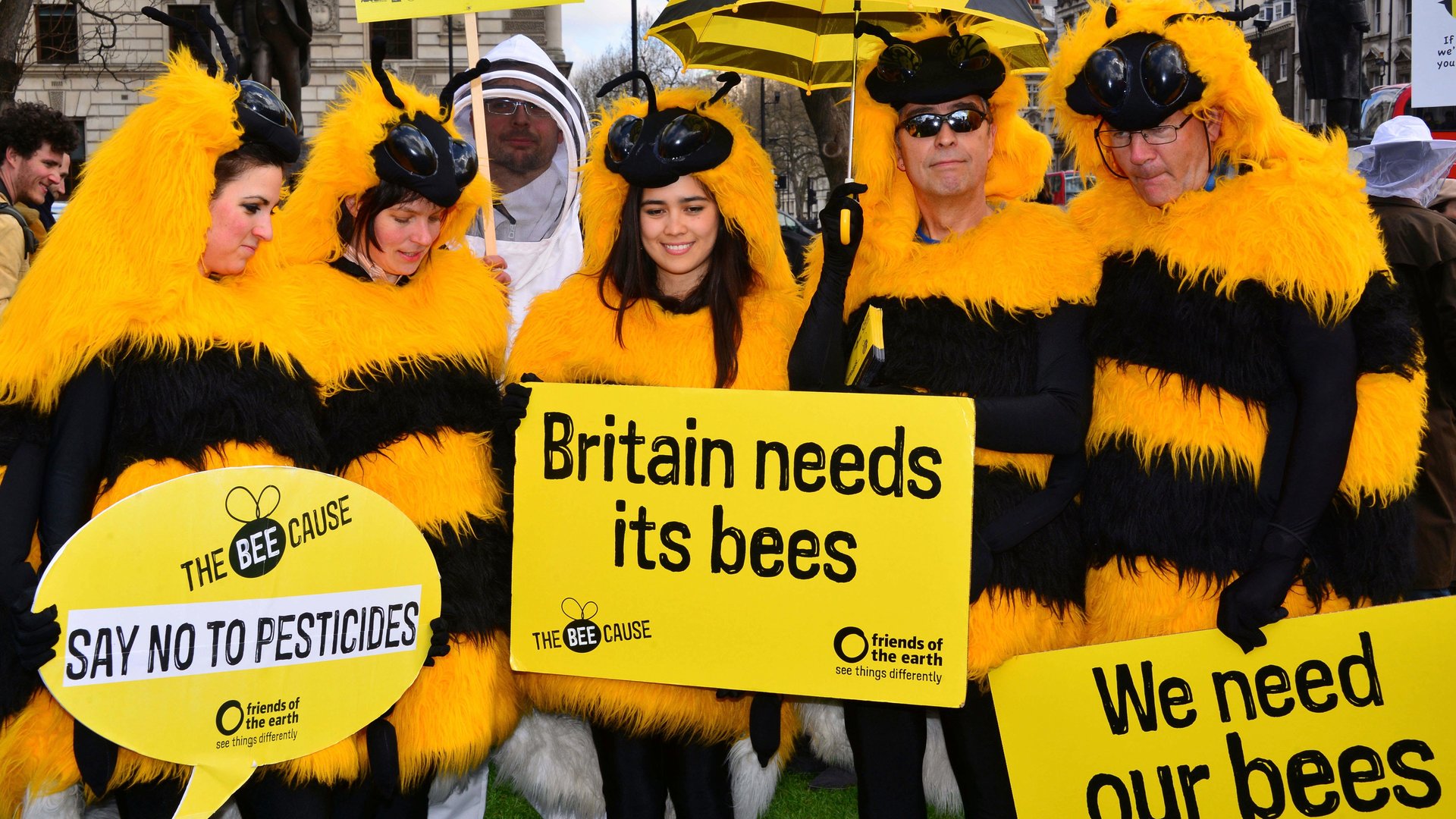London has way too many bees, and they’re hungry
London is killing bees with kindness.


London is killing bees with kindness.
As honey bee populations have crashed in Europe and the US in recent years, Londoners have taken to raising bees in their backyards with all the enthusiasm of Californians saving the whales in the 1970s. Over the past five years, the number of urban beehives in the UK capital has more than doubled to 3,745, with 10 beehives per square kilometer (.39 square miles), according to an article published in the latest issue of the journal The Biologist.
Good for the bees, right? Not quite. At such densities, there simply isn’t enough pollen currently available in Greater London to feed the bees, argue University of Sussex scientists Francis Ratnieks and Karin Alton.
“If there is a growing shortage of flowers due to agricultural intensification and urbanization, will increasing the number of hives help honey bees?” the researchers write. “Would we try to help the population of elephants in a region of Africa by introducing more elephants if it was known that there was a food shortage?”
Ratnieks and Alton calculate that each additional beehive in London needs enough pollen produced by 1 hectare (2.47 acres) of borage or 8.3 hectares (20.5 acres) of lavender. “Clearly, this, or the equivalent in other flower varieties, has not been provided, and neither would it be practical to do so,” according to the scientists.
The consequence of London’s bee boom is growing competition for food that crowds out other apian species, leading to smaller, hungrier bees.
So what’s the solution? The scientists urge bee-loving Londoners to keep fewer hives and plant more flowers to feed the existing population.
Though as Quartz reported yesterday, that could be problematic.
A study by the Pesticide Research Institute and Friends of the Earth in the US found that plants sold by nurseries as bee-friendly were contaminated with the same agricultural pesticides linked to Colony Collapse Disorder. The still-unexplained affliction has wiped out 10 million hives in the US over the past six years. Those honey bees pollinate an estimated $30 billion worth of American crops that supply a third of the country’s food.
But Britain’s backyards are likely a safer place for bees given the Friends of the Earth’s successful campaign to persuade some of the country’s largest nurseries to stop selling plants pre-treated or grown with a class of agricultural chemicals called neonicotinoids.